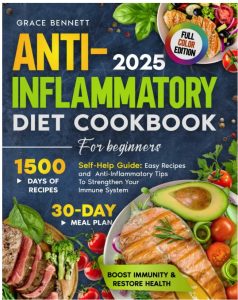Inflammation during Perimenopause
How Inflammation Affects Perimenopause
During perimenopause, your oestrogen levels dance around like they’re at a party! These hormonal changes can lead to increased inflammation and some pesky symptoms. These fluctuations impact various systems in your body, including your immune system. When inflammation is on the rise, it can magnify those uncomfortable experiences.
- Hot flushes and night sweats can be more intense – When inflammation kicks in, it can affect your brain’s temperature-regulation centre, making you more sensitive to temperature changes. Yikes!
- Anxiety and mood swings might get a boost – Inflammation can have an effect on neurotransmitters like serotonin and dopamine. It can also throw your hormonal balance off course, making those mood-related ups and downs even tougher. This might amplify feelings of stress, low mood, irritability, and overwhelm.
- Sleep problems may stand out more – Inflammation can interrupt deep sleep, and when you sleep poorly, it can cause inflammation to rise further — an annoying cycle!
- Joint and muscle aches can feel stronger – Many women notice new or worsened aches during perimenopause. This could be due to inflammation impacting nerve signals and muscle function, which can make those pains more intense.
- Fatigue may creep in – Inflammation can zap your energy, making that usual tiredness from perimenopause feel even heavier.
- Weight gain can feel easier – Inflammation can contribute to insulin resistance, particularly around the belly — something many women experience during perimenopause.
Why Perimenopause Can Boost Inflammation
As oestrogen levels drop, its natural anti-inflammatory effects diminish. This decline puts your body at a disadvantage against inflammation. Here’s what can happen:
Your gut microbiome may lose its stability
Stress responses can ramp up
Cortisol levels might stay elevated
Your sleep can be disrupted
Joint tissues may become more sensitive
These factors create a higher-inflammation environment.

The Bright Side
Even small changes in your lifestyle can make a big difference in reducing inflammation and easing those pesky perimenopause symptoms.
Here are some helpful tips:
More fibre and veggies
Foods rich in Omega-3 (think salmon, tuna, sardines)
Walking and light exercise
Better sleep habits
Managing stress
Cutting back on ultra-processed foods
Supporting your gut health
Staying hydrated
(If appropriate) HRT can offer anti-inflammatory effects for many women
By focusing on these friendly anti-inflammatory practices, you can enjoy a smoother transition through this stage of life!
